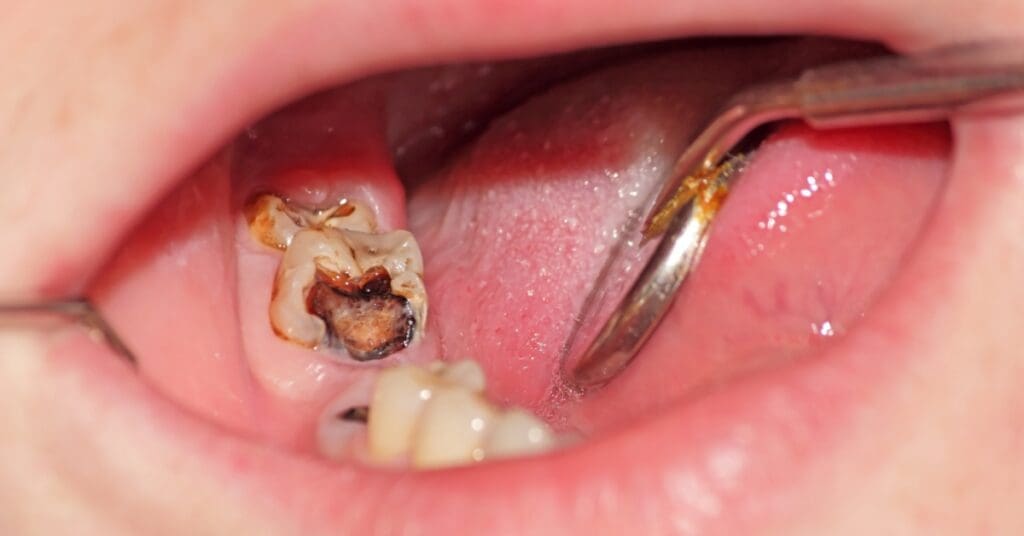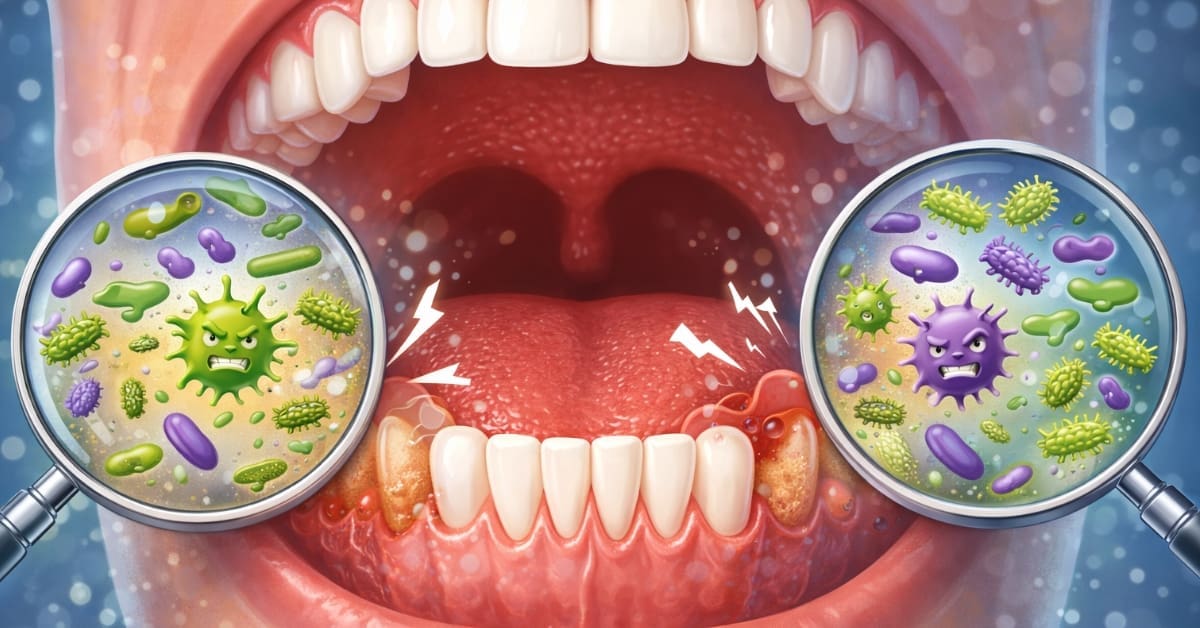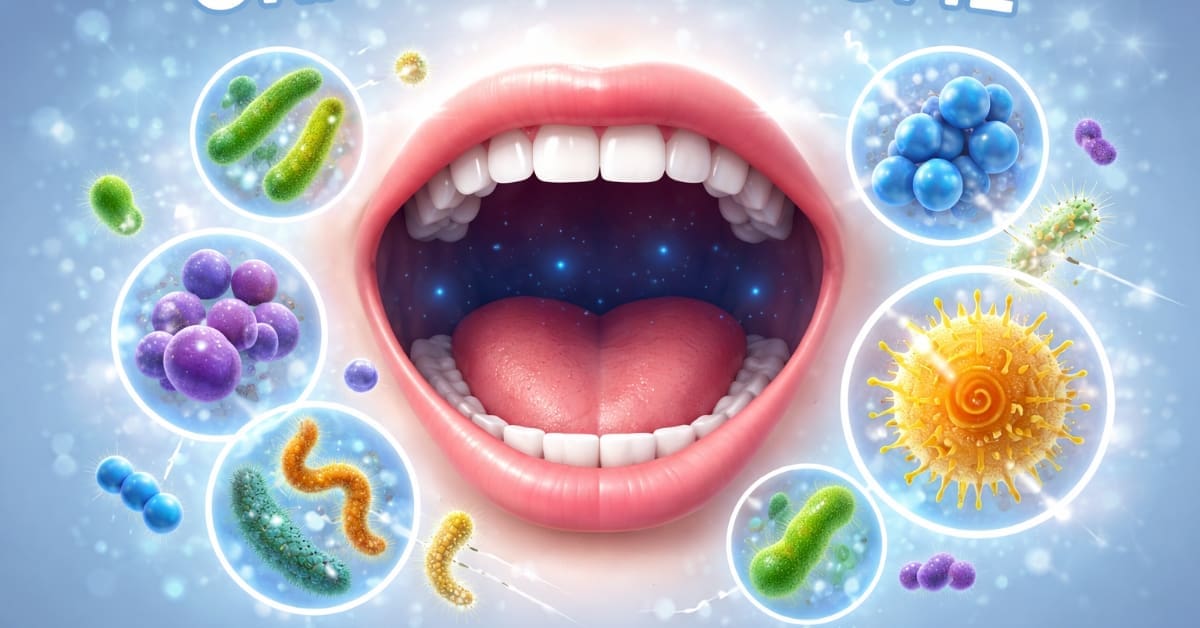Tooth Decay: Causes, Symptoms, and Prevention
Tooth decay, dental caries, or cavities are prevalent oral health issues affecting individuals worldwide. It is a multifactorial process influenced by various factors, including diet, oral hygiene practices, genetics, and microbial activity.
If left untreated, tooth decay can progress to infection, causing pain and ultimately leading to tooth loss. This can have significant repercussions on overall health and diminish quality of life. Therefore, it is crucial to understand the causes, symptoms, and preventive measures associated with it to maintain optimal oral health.
Causes of Tooth Decay
The main cause of tooth decay results from the interaction between bacteria present in the mouth and fermentable carbohydrates derived from the diet. Streptococcus mutans and Lactobacillus species are the most common bacteria in tooth decay. These bacteria metabolize sugars and starches from food particles, producing acids that demineralize the tooth enamel, forming cavities.
Several Factors Contribute to Developing Tooth Decay
Poor Oral Hygiene
Insufficient brushing and flossing permit plaque, a sticky bacterial film, to build up on the surfaces of the teeth. Plaque buildup provides a conducive environment for bacterial growth and acid production, increasing the risk of tooth decay.
High Sugar and Carbohydrate Intake
Consuming sugary and starchy foods and beverages, especially between meals, fuels bacterial activity and acid production in the mouth, accelerating the process of tooth demineralization.
Acidic Foods and Drinks
Acidic foods and beverages like citrus fruits, fizzy drinks, and vinegar-based products have the potential to wear away tooth enamel, increasing vulnerability to decay.
Dry Mouth
Saliva plays a big role in preserving oral health by neutralizing acids and aiding in the remineralization of tooth enamel. Conditions such as xerostomia (dry mouth) decrease saliva production, heightening the likelihood of tooth decay.
Genetics
Genetic factors, including enamel strength, saliva composition, and immune response to bacteria, can influence an individual’s susceptibility to tooth decay.

Symptoms of Tooth Decay
Tooth decay symptoms may vary depending on the severity and location of the cavities. During the initial stages, tooth decay might not manifest any discernible symptoms. Nevertheless, as the condition advances, the following indicators may emerge.
Tooth Sensitivity
An early common indication is sensitivity to hot, cold, sweet, or acidic foods and beverages. This tooth sensitivity arises when the enamel is compromised, revealing the underlying dentin, which houses nerve endings.
Toothache
Persistent or intermittent toothache, often exacerbated by chewing or consuming sugary foods, may indicate advanced tooth decay reaching the tooth’s inner layers, including the pulp.
Visible Holes or Pits
Cavities may become visible as white, brown, or black spots on the tooth surface as they develop. These holes or pits may gradually increase in size if left untreated.
Discoloration
Tooth decay can cause discoloration or darkening of the affected teeth due to enamel breakdown and bacteria and food debris accumulation within the cavities.
Bad Breath
Bacterial activity associated with decay can produce foul-smelling gases, contributing to persistent bad breath (halitosis).
Prevention of Tooth Decay
Preventing tooth decay involves adopting a comprehensive approach to oral hygiene and lifestyle habits.
Here are some effective strategies for reducing the risk of tooth decay:
- Maintaining Good Oral Hygiene: It involves brushing teeth at a minimum twice daily with fluoride toothpaste and flossing regularly. These practices aid in the removal of plaque and food particles from tooth surfaces and interdental spaces, thereby minimizing the risk of decay.
- Limit Sugary and Acidic Foods: Minimize consumption of sugary snacks, candies, sodas, and acidic foods that promote bacterial growth and enamel erosion. Choose healthier alternatives such as fruits, vegetables, dairy products, and water to support oral health.
- Drink Water: Drinking fluoridated water helps strengthen tooth enamel and remineralize early signs of decay. Additionally, it encourages saliva production, which assists in rinsing away food debris and neutralizing acids in the mouth.
- Use Fluoride Products: Use fluoride-containing toothpaste, mouthwash, and dental treatments as oral health professionals recommend to strengthen tooth enamel and prevent cavities.
- Visit the Dentist Regularly: Schedule regular dental check-ups and cleanings every six months or as your Dentist advises. Regular dental check-ups facilitate the timely identification and management of tooth decay and other oral health issues.
- Consider Dental Sealants: Dental sealants, thin, protective coatings can be applied to the chewing surfaces of molars and premolars. Their purpose is to seal off pits and fissures, thereby diminishing the risk of decay in these susceptible regions.
- Practice Healthy Lifestyle Habits: Avoid tobacco use and limit alcohol consumption, as these habits can increase the risk of gum disease and oral cancer, exacerbating oral health problems like tooth decay.
Prioritize Oral Health for a Brighter Smile and a Better Life
Tooth decay is a prevalent but avoidable oral health issue that can have considerable consequences if not addressed promptly. Understanding the causes, symptoms, and preventive measures associated with tooth decay empowers individuals to take proactive steps to maintain optimal oral health throughout their lives.
By adopting good oral hygiene practices, making dietary modifications, and seeking regular dental care, individuals can reduce their risk of developing cavities and preserve their natural teeth for years.
If you are looking for a New Jersey Best Dentist, look no further than right here. Contact Suburban Essex Dental in West Orange today to schedule your next dental appointment and see why.
Remember, a healthy smile starts with a commitment to oral health maintenance and preventive care.





